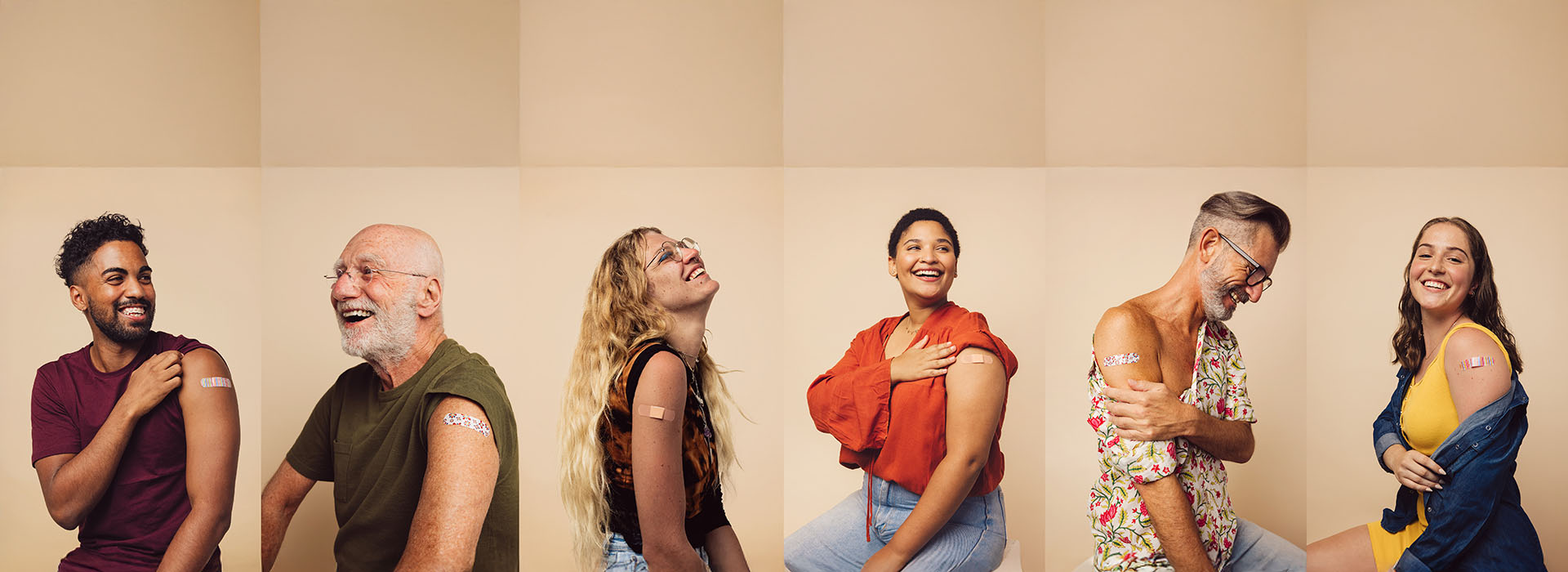
Respiratory Syncytial Virus (RSV) is a common but potentially serious respiratory illness that affects people of all ages—especially infants, babies, older adults, and immunocompromised individuals, who are particularly vulnerable to severe RSV infection. Certain risk factors, such as age, chronic health conditions, and weakened immune systems, increase susceptibility to severe RSV illness. At mediDental care, we provide RSV vaccines as part of our commitment to preventive primary care in Astoria, helping you and your loved ones stay healthy during RSV season and beyond by focusing on effective prevention strategies.
Whether you’re a parent protecting a newborn or a senior managing chronic conditions, we’re here to guide you with personalized vaccine recommendations and expert care.
RSV is a contagious respiratory virus that infects the lungs and breathing passages. RSV disease can cause severe illness, especially in infants, older adults, and those with weakened immune systems. It is one of the most common causes of bronchiolitis and pneumonia in children under 1 year and can be dangerous for older adults with weakened immune systems.
Symptoms of RSV include:
Common Symptoms:
Most people recover in a week or two, but some develop serious complications that require hospitalization.
Recent advancements in medicine have made RSV vaccines available for the first time for certain groups. The primary goal of RSV vaccination is the prevention of RSV disease, particularly in vulnerable populations. These vaccines can significantly reduce the risk of severe illness, hospitalization, and death—especially in high-risk populations.
As of the latest CDC recommendations, RSV vaccines are approved and advised for eligible older adults, particularly those at increased risk of severe disease. The CDC recommends RSV vaccination for these groups based on age and underlying health conditions.
We carry the most up-to-date RSV vaccines approved by the FDA and recommended by the CDC. There are three RSV vaccines available, each designed for different age groups, including older adults and infants. These RSV vaccines can be administered alongside other vaccines, such as flu, shingles, or pneumococcal vaccines, during the same appointment. All available RSV vaccines have undergone rigorous regulatory review to ensure vaccine safety and are continuously monitored for side effects.
We’ll determine the best timing and formulation based on your age, health conditions, and vaccination needs.
RSV season typically runs from late summer through early spring, with peaks in late fall and winter. The best time to get vaccinated is during late summer and early fall, just before RSV seasons begin, to ensure optimal protection as outbreaks recur each year.
Recent data from the first RSV season after vaccine approval (2023–2024) show strong vaccine effectiveness. Ongoing studies are also tracking how well the vaccine protects over three RSV seasons to assess long-term efficacy.
Getting your RSV vaccine at mediDental care is simple and efficient. Each person is assessed individually for vaccine eligibility to ensure safety and effectiveness.
Our step-by-step process:
Our team is dedicated to making sure every patient receives the care and attention they need throughout the vaccination process.
The most common side effects include:
These side effects are typically mild and resolve within a day or two.
Respiratory illnesses can share similar symptoms. RSV, influenza, and COVID-19 are all examples of respiratory infections that can affect people of all ages, especially vulnerable populations.
Here’s how RSV compares to other seasonal viruses:
|
Symptom |
RSV |
Influenza |
COVID-19 |
|
Fever |
Common |
Common |
Common |
|
Cough |
Common |
Common |
Common |
|
Nasal Congestion |
Common |
Sometimes |
Common |
|
Wheezing |
More common |
Rare |
Rare |
|
Body Aches |
Sometimes |
Common |
Common |
|
Loss of Taste |
Rare |
Rare |
Common |
We offer combined flu, COVID-19, and RSV vaccine appointments when possible for added convenience.
While most children recover from RSV on their own, babies—especially those born prematurely or with chronic health issues—are at higher risk of severe RSV infections from birth.
Adults over 60 account for a significant portion of RSV-related hospitalizations and have an increased risk of severe outcomes from RSV, including severe RSV disease. Risk factors for severe RSV disease in older adults include chronic conditions such as COPD, heart failure, diabetes, and immunocompromising conditions. RSV infection in this age group can lead to life-threatening complications.
Complications can include pneumonia, bronchiolitis, and lower respiratory tract disease.
Vaccination dramatically reduces the risk of these outcomes.
Our team stays up to date with CDC and NYC guidelines to ensure the safest and most effective care.
Protect your health and your family’s health with an RSV vaccine at mediDental care. Whether you’re over 60, expecting a baby, or caring for a newborn, we’re here to help you prevent serious illness during RSV season.
📍 Located in Astoria, Queens
📞 Call us or book your appointment online
Stay protected, stay informed—with mediDental care, your go-to provider for RSV vaccines and primary care in Astoria.
Yes. RSV vaccines underwent thorough clinical trials and are FDA-approved for specific populations. Side effects are typically mild.
Yes. It’s safe to receive RSV vaccines alongside flu shots and COVID-19 boosters.
Current RSV vaccines are designed for seasonal use, with protection lasting several months through the peak season.
Not directly. Infants may receive monoclonal antibody protection or passive immunity from maternal vaccination.
In most cases, yes—especially for eligible seniors and pregnant individuals. We can check your coverage.
Individuals with severe allergic reactions to vaccine components should avoid it. We screen thoroughly before administration.
Address:
2246 31st St, Astoria, NY 11105